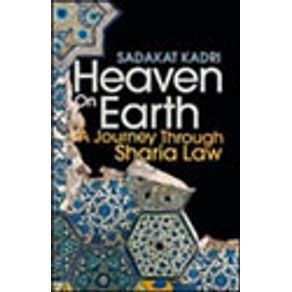Almost 1400 years after the Prophet Muhammad first articulated God’s law - the sharia - its earthly interpreters are still arguing over what it means. Hardliners reduce it to amputations, veiling, holy war and stonings. Others say that it is humanity’s only guarantee of a just society. In Heaven on Earth, Sadakat Kadri, a London-based criminal barrister and prize-winning writer, sets out to see who is right. Travelling the Islamic world, he encounters a cacophony of legal claims. At the ancient Indian grave of his Sufi ancestor, unruly jinns are exorcised in the name of the sharia. In Pakistan’s madrasas, stern scholars ridicule his talk of human rights and demand explanations for NATO drone attacks in Afghanistan. In Iran, he hears that God is forgiving enough to subsidise sex-change operations - but requires the execution of Muslims who change religion. All Muslims are guided by the sharia - whatever their interpretation of it - and the stories of compulsion and violence are just part of a much bigger picture. Many of Islam’s first judges refused even to decide cases for fear that a mistake would damn them, and scholars from Delhi to Cairo maintain that governments have no business enforcing faith. In this illuminating and important book, Sadakat Kadri draws on Islam’s past and present to show us why. The promise of a perfect social order can be compelling. But reality will always intrude. And when human beings attempt to apply divine justice, they risk creating not a heaven on earth - but something much closer to hell.


